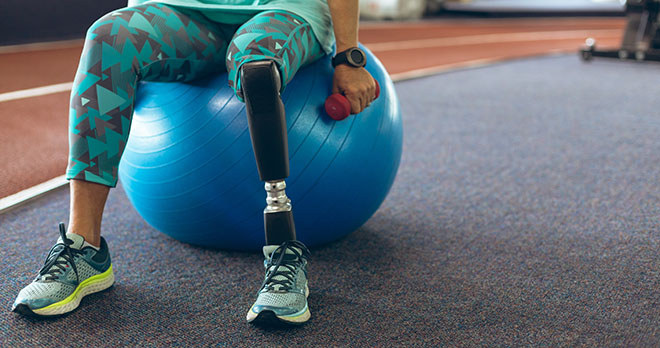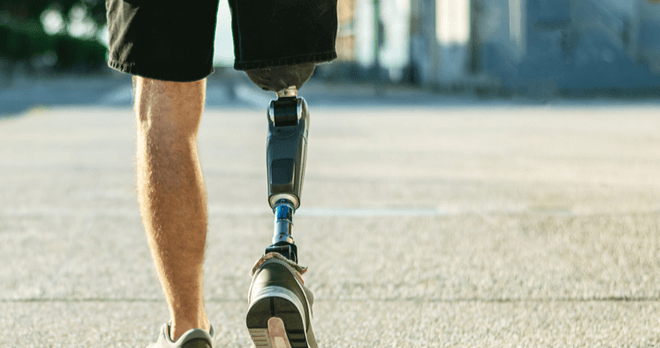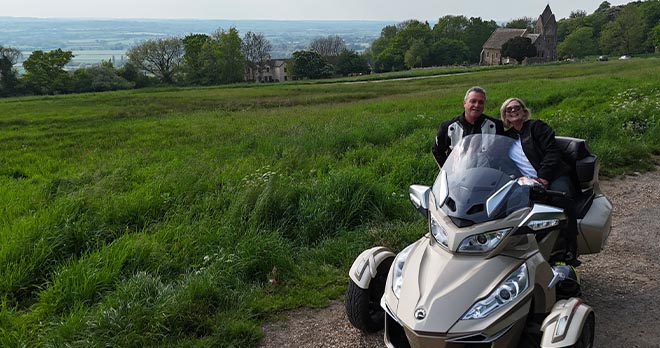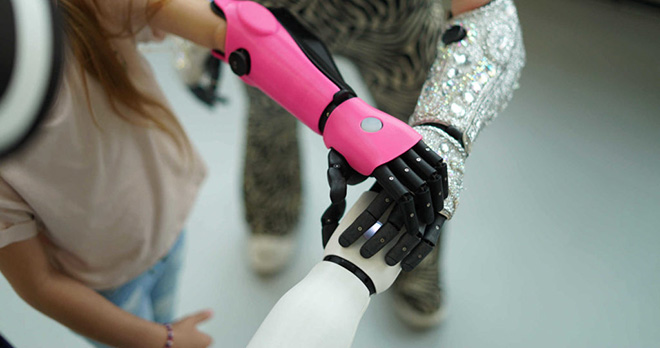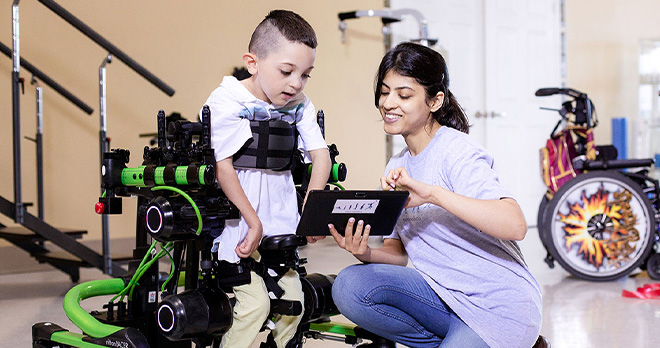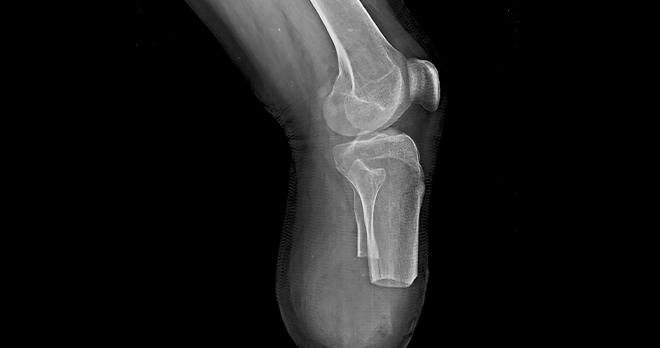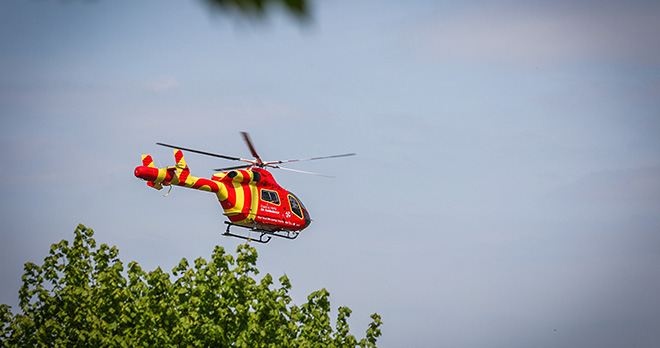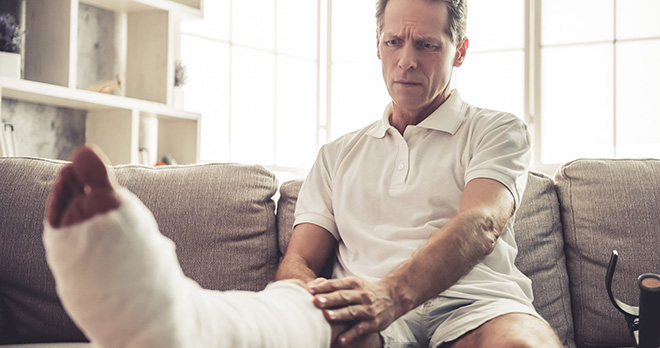In Conversation with Deborah Bent, CEO of the Limbless Association
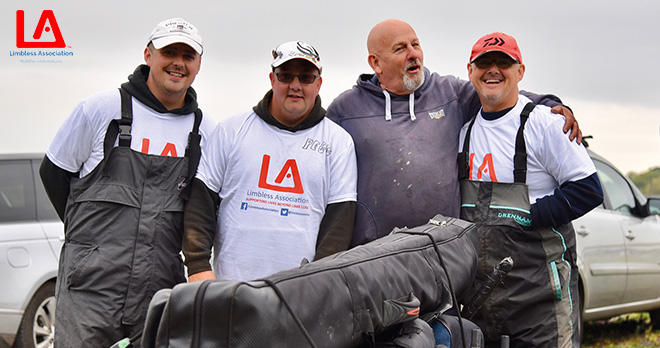
For this edition of Team Around the Client, I had the opportunity to sit down for a Q&A with Deborah Bent of the Limbless Association, who are leading the way in service-user led, wholistic support for individuals with limb loss & limb difference.
I wanted to explore the central ethos of the Limbless Association, and how their innovative approach to peer support is helping people nationwide to make a meaningful and fulfilling transition to life beyond limb loss.
Can you tell us a bit about the history of the Limbless Association and how you became the organisation that you are today?
We just celebrated our 39th Birthday. Initially the charity started off as a campaigning organisation. By the late 70’s there was already quite a bit of support for individuals who had lost limbs during military service. However, there was a gap in both awareness and provision for people who had lost limbs in a civilian capacity, be that through health issues, road traffic or industrial accidents. That’s how the Limbless Association got started: the idea was to be a collective voice for these individuals and families. From the outset, the Limbless Association has been member-led with an ethos centred on lived experience. Hence why peer support is so important to the service we provide.
Over 25 years ago, the charity started its Volunteer Visitor (peer support) programme recognising the power of peer support for the limb loss community. In 2019 we were excited to be awarded National Lottery funding to develop and expand this service and we now offer nationwide provision. We’re continuing to grow due to the fantastic commitment of our volunteers and the confidence that referring professionals have in our work.
The peer-to-peer connection and the bond between service users and their peer support volunteers is vital as there is an automatic understanding of what new amputees are going through. The importance of peer support is already backed up by research, but we are also contributing to, and looking to fund, further research on the benefits of peer-support following limb loss.
Ultimately, our members and volunteers are evidencing the benefits of a user-led peer support programme, and we want to grow this to continue providing early and meaningful intervention for patients and families affected by limb loss.
What would you say are the central aims and objectives of the Limbless Association?
There is always going to be an element of awareness raising, as obviously we want as many people as possible to benefit from the services that we provide. Ultimately though, we want to be a central point of reference from which amputees and their families can access all the support they need during their limb loss journey. An integral part of the rehabilitation pathway.
We work with professionals across the entire spectrum of service provision aiming to ensure all the building blocks are in place during the rehabilitation pathway. With the best will in the world no one professional can cater for all the needs that arise following an amputation, and without a holistic approach, it can be extremely overwhelming. Even the most proactive and psychologically resilient individuals need support following limb loss and they need to know that the support is there to help them move forward with their lives.
Our central guiding principle is that ‘no amputee must cope alone’. Equally though, we recognise that not everyone is in the same place on their limb loss journey. Our aim is to identify what people have in place already, and then fill in the gaps. Empowerment is very much our focus.
Going forward, one of the main aims of the Limbless Association is to strengthen our partnership with the NHS to make sure people have the correct support when they go home following a traumatic event and to support the challenges of this lifelong condition.
Can you tell us about some of the support services that the Limbless Association offer?
With any long-term condition there are constant challenges, and every patient is different. We have found though that, by and large, being better informed tends to lead to better rehabilitation outcomes.
Our members advised us that one of the biggest challenges historically was that a lot of the available support seemed disconnected. For this reason, the Limbless Association has moved from being just a helpline, to offering a fully-fledged peer support and outreach programme.
Having been through amputations themselves, our peer support volunteers are uniquely placed to bridge the gaps in support and make sure that provision is aligned. Whether it is through signposting services, direct support and connectivity (provided online and in person), themed information events with guest speakers, accessible relaxation sessions, or specific practical and emotional support via peer support mentoring, there is always support available.
Our aim is to build a support package and programme to meet the needs of individual members. Amputees who receive the most complete and connected post-amputation support tend to achieve the best outcomes going on to lead purposeful and fulfilling lives beyond limb loss.
The Limbless Association were recently successful in their bid for lottery funding. What doors has this opened for the Limbless Association and its members?
Charitable services cost money. To be able to deliver peer support we need to have a team, we to offer comprehensive training, and we need to manage, support and develop our volunteers. It therefore requires a robust model.
We applied to the National Lottery and put forward our vision. It was a long process, but we have been granted £367,000 over a period of 3 years. This enables us to now recruit people, provide training, and build our community of volunteers.
Ultimately, we feel that the Lottery funding is enabling us to build a robust service model and offer the gold standard of advice, information and support for people who have experienced limb loss. We are excited t be investing in, training, and equipping our volunteers to provide the best possible support and realising our vision of peer support.
Can you tell us about some of the recent challenges faced by the Limbless Association, and how you have navigated these challenges for the benefit of your members?
The pandemic was obviously challenging for many organisations, but this was particularly the case for charitable organisations representing vulnerable people.
Going into the pandemic we were fortunate. We were very quick to take our support online and very keen to ensure members were ok. We called and surveyed them, we tried to get as many people as possible to engage and had weekly hub chats and wellbeing hubs which included the increasingly popular sitting yoga/relaxation classes. We also had experts talking about mental health, prosthetics, motability, travelling and so on.
In fact, the online element of our service offering was so successful that it has remained following the lifting of restrictions as many amputees – particularly during the early stages of their rehabilitation – prefer to engage from the comfort of their own home initially.
What does the future hold for the Limbless Association?
We want to grow our membership. It is approaching 2,000 members and we are working towards a bigger collective voice. In light of this, we are also looking to grow our volunteer base and reach. We are already offering support nationwide, having recently launched our outreach programme in Wales and Northern Ireland, and we will be looking to bolster our services within specific geographical regions.
We also want to grow our referrals through the professional and clinical route. Part of this will be an exciting new project that we’re launching in February 2023 - Training to be an Amputee. We will have sessions from benefits advisors, prosthetists, therapy practitioners, accommodation experts and so on. The aim of the 8 week programme will be to inform and empower new amputees and their families to better navigate the early rehabilitation pathway. All within an inclusive and supportive environment. Each session will be supported by volunteers who have lived experience of the respect topics. The training courses will be delivered online and supported with resources. Friends and family can also attend the sessions as we often find that family members, or even friends, are the first ones to ask for help on behalf of the amputee.
Ultimately, we want to be the first organisation people think of to provide support and information for amputees and their families.
For the benefit of our professional readership, where can they go to find out more about making a referral?
Our website has a wealth of information including our contact details if anyone wants to get in touch, and we also have a digital resource pack which is useful for professionals. Furthermore, we have printed literature and amputee information packs that we’ll be happy to provide on request.
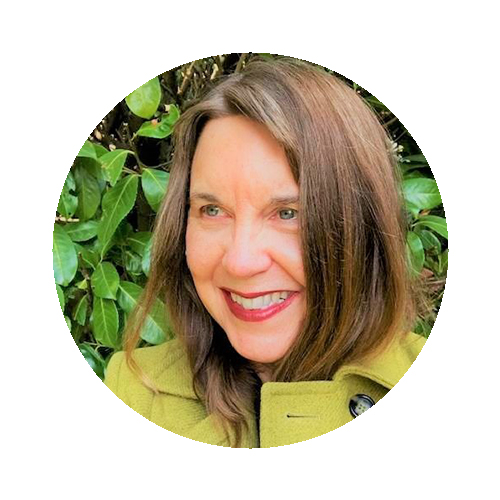
About Deborah
Debbie has been the CEO of the Limbless Association since 2016.
